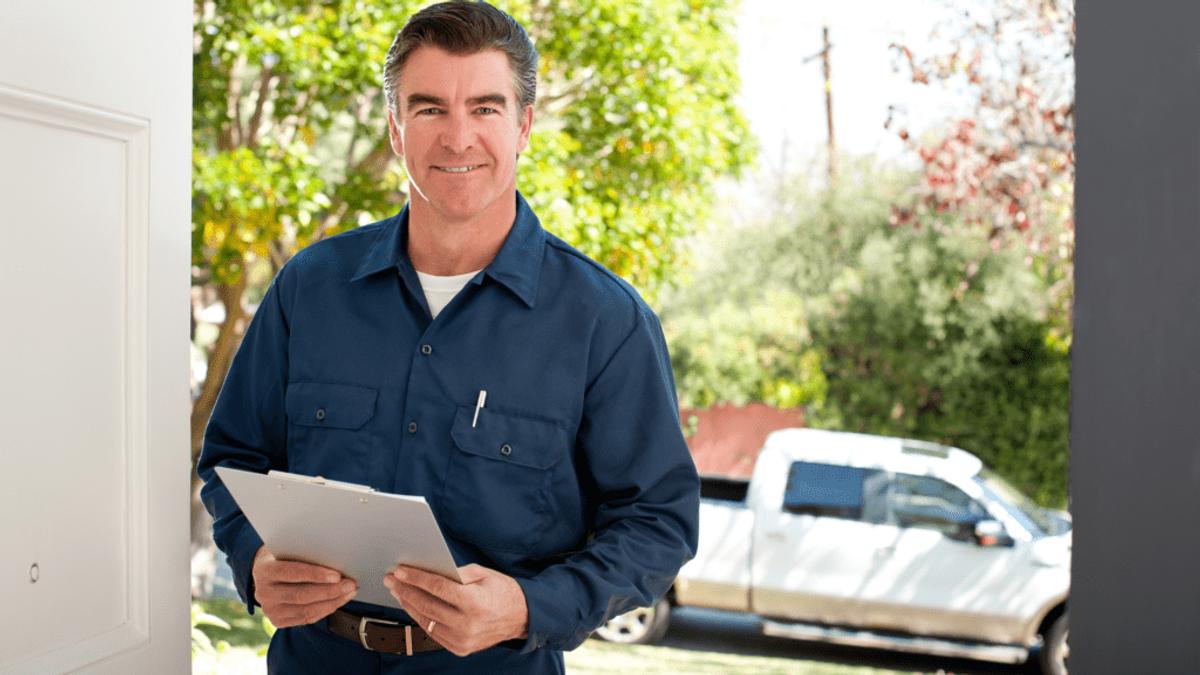Improve Your HVAC Customer Experience: Ask Customers These 35 Questions
Knowing what your customer needs is vital to the customer experience. These 35 questions can help you dig in deeper to discover what they really want and need.

Customer experience is an important part of your HVAC business, and sometimes, it can feel like asking questions affects that experience. It’s almost as if customers might get annoyed if you ask “too many” questions, especially if you’ve asked them before.
But think about the last time you went to the doctor. How many questions did they ask you before you arrived? Did they ask about your medical history, even though you’ve gone to that doctor for practically your whole life? What about your current medications? Insurance coverage?
What about the last time you went to the doctor and they didn’t ask a million and one questions? Did you feel like they really took the time to figure out what was wrong?
The HVAC industry works similarly. To properly diagnose a problem for a customer, you need all the information you can get, including verification of existing information. Every customer’s different, and you can’t control what information they’ll tell you. By asking the right questions, you can dig deeper into the issue and figure out what your customer really needs.
Intake Questions
You never want to feel like you’re going into a customer’s home blind. Intake questions can help you uncover what they think their problem is, plus some information about their house and HVAC system so you’re prepared when you arrive.
You can ask these questions to new or returning customers when they call to schedule an appointment or book online.
Intake Questions for New Customers
While you may be familiar with your returning customers’ homes and HVAC systems, a new customer is a complete mystery. Asking questions beforehand can dispel some of that mystery before you arrive.
Questions about their home history give you an idea of what exactly you’ll be working with, as well as appropriate recommendations to make:
- How old is your house?
- How many square feet is your house?
- How many people live with you?
- How old is your HVAC system?
Questions about the system’s warranty ensure you use the correct parts and ensure you don’t service a system whose brand you don’t carry:
- Is your current system under warranty?
- Is having a warranty important to you?
- If so, what is the brand of your HVAC system?
And questions about how they chose your company help you determine the best ways to recruit and retain customers:
- Why did you choose our company?
- Who can we thank for referring you?
Once you’ve asked your customers about their home’s history, system warranty, and how they chose your company, you don’t need to ask them those questions again. Just make note of them so you have those answers to look back at later.
Intake Questions for All Customers
Gathering basic data for new customers is important, but you’ll also want to ask a few questions about this specific visit to all of your customers.
Questions about the problem ensure you have the tools you need for the visit:
- What is your main concern for this visit?
- How long has this issue been going on?
Maintenance questions help catch the simple things, such as being overdue for a tune-up or needing to replace their air filter more often:
- When was the last time you had your HVAC system serviced?
- When was the last time you changed your air filter?
Asking these questions every time is vital, even if they’re a regular customer, just in case they went with a different company between visits.
Appointment Questions
When you arrive at the appointment, you can ask the homeowner more in-depth questions to help diagnose the problem. These questions are best left to the person providing the service, not the person doing the intake, in case anything changes before the appointment.
Before taking a look at the HVAC system, you should ask questions that can help lead to a diagnosis, such as:
- What issues have you noticed?
- Have you noticed any unusual or unpleasant sounds?
- Have you taken any steps to improve your HVAC system before we arrived?
You can also ask some basic questions to get a better feel for the HVAC system and what you can recommend for the customers’ needs and wants:
- Are there any hot or cold spots in the house?
- Does anybody else complain about heat or cold?
- How is the air quality?
- Can I see your outdoor compressor?
- What is your monthly spend for heating and cooling?
- How important is technology to you?
- How do you see me helping you today?
- Do you have any questions?
And questions about the homeowner’s long-term goals can help you recommend appropriate long-term solutions:
- What would you like to see your AC system do differently?
- How long do you plan on being in this home?
Having these answers in the back of your mind can help you diagnose and find the best solution(s) for the customer.
Post-Appointment Questions
The questions don’t end once you diagnoses the problem. In fact, it’s a good idea to ask customers after the service to keep them engaged with your business. Here are some examples you can ask at the end of an appointment and when you follow up on the service.
End of Appointment Questions
After you diagnose the problem, it’s time to discuss options with the customer. You can use these questions to help make customers feel like they have a choice and aren’t being pressured.
Before making any decision at the appointment, ask your customer if there are other members of the household who should be involved in the decision. This ensures your customers don’t feel forced to make a decision even if all decision-makers aren’t there.
But once you do have all decision-makers involved and have decided on a plan, you can ask about payment options:
- Would you like to pay cash, card, or in monthly installments?
- Are you interested in learning about the financing options we offer?
Phrasing payment questions like this makes the financing conversation more natural. Your customers may still choose to pay cash or card this time, but they’ll know you offer financing if they need it.
Follow Up Questions
Following up after the appointment can show your customers you care, which can improve their customer experience and can help make the sale.
If your customer’s still deciding or consulting with others, you can ask this question on a follow-up phone call:
- Are there any other questions I could answer while you’re deciding?
And to keep the customer engaged with your business, consider sending an email asking the following questions:
- Would you like to schedule an appointment to perform the services we discussed?
- Would you be interested in a service contract?
- Could you leave us a review?
- Do you know of anyone who might be interested in our services?
If you offer an incentive for reviews and/or referrals, this is a great place to mention that as well.
Asking the right questions can help improve customer experience and increase your sales. While you don’t have to ask every customer every question every time, these are great options to incorporate more questions into your sales process. This way, you can solve your customers’ problems without needing to read their minds.
 Sales StrategyUsing Seasonal Specials to Boost Your HVAC Business Year-Round
Sales StrategyUsing Seasonal Specials to Boost Your HVAC Business Year-Round Sales StrategyThink Like a Customer: The Psychology Behind Closing More HVAC Deals
Sales StrategyThink Like a Customer: The Psychology Behind Closing More HVAC Deals Sales Strategy, Financing Essentials3 HVAC Mistakes That Are Costing You Money
Sales Strategy, Financing Essentials3 HVAC Mistakes That Are Costing You Money